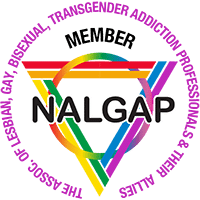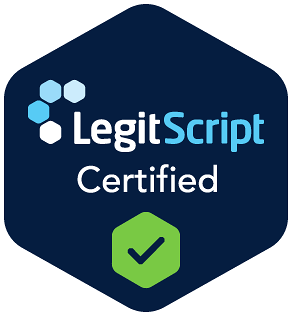Find Family Healing in Denver, Colorado
Located in Denver, Colorado, Mile High Recovery Center (MHRC) is a leading provider of substance abuse and mental health treatment programs. We understand that addiction is a complex disease that affects not only the individual but also their family.
MHRC is committed to providing a comprehensive and individualized approach to addiction treatment, incorporating a range of services to address the physical, psychological, and social aspects of addiction.

Our Treatment Options
Our treatment options include:
- Detox
- Inpatient rehab
- Partial hospitalization programs (PHP)
- Intensive outpatient programs (IOP)
- Outpatient programs
- Sober living
- Drug rehab aftercare
These services are designed to meet the unique needs of each client, ensuring they receive the most effective treatment possible.
Our Focus on Family Therapy in Addiction Recovery
One important aspect of Mile High Recovery Center’s approach is our focus on family therapy in addiction recovery. Family therapy is a form of treatment that helps families understand and cope with the challenges of addiction.
It can be a powerful tool for healing and rebuilding relationships.
Understanding Family Therapy in Addiction Recovery
Family therapy in addiction recovery focuses on improving the relationships and dynamics within a family. It is an evidence-based approach, meaning it is supported by research and proven to be effective.
In the context of addiction recovery, family therapy addresses the ways addiction affects family systems and relationships.
Through family therapy in addiction recovery, family members learn to:
- Communicate openly and honestly about addiction
- Develop healthy boundaries
- Support their loved one’s recovery efforts
- Cope with triggers and cravings
- Heal from past hurts and rebuild trust
Importance of Family Therapy in Addiction Recovery
Family therapy in addiction recovery helps promote healing by encouraging open communication and providing support among family members.
This type of therapy allows families to:
- Understand the impact of addiction
- Learn healthy ways to interact
- Support their loved one’s journey to recovery
Impact of Family Therapy on Recovery Efforts
By involving the family in the recovery process, family therapy helps create a supportive environment that fosters long-term recovery and strengthens family bonds.
The Role of Family Dynamics in Addiction
Family dynamics play a significant role in both the development and maintenance of addiction.3
Unhealthy family patterns, such as enmeshment, codependency, and enabling behaviors, can create a stressful and unstable environment that increases the risk of developing substance use disorder (SUD).
Enmeshment
Enmeshment happens when family members lack clear boundaries. They become overly invested in each other’s lives. This can make it hard for people to develop their own identities. They might also struggle to cope with challenges on their own.
Codependency
Codependency is a pattern where one person’s well-being is reliant on another person’s behavior. In families dealing with addiction, codependency can manifest as family members taking over responsibilities or making excuses for the person struggling with addiction.
Enabling Behaviors
Enabling behaviors are actions that unintentionally support a person’s addiction. This might include giving money for substance use. It can also involve hiding negative consequences or not setting clear boundaries.
Addressing These Patterns in Family Therapy
Family therapy in addiction recovery helps address these dysfunctional patterns. Therapists work with families to identify unhealthy behaviors and develop healthier ways of interacting.
They can teach:
- Communication skills
- Conflict resolution techniques
- How to set healthy boundaries
This empowers family members to provide supportive and constructive interactions, ultimately promoting a more stable environment conducive to recovery. By addressing these underlying issues, family therapy can help break the cycle of addiction within the family system.
Goals and Objectives of Family Therapy in Addiction Recovery
Family therapy in addiction recovery has several key goals and objectives. One of the main goals is to improve communication within the family. By learning how to express thoughts and feelings openly and honestly, family members can better understand and support each other.
Another important objective is setting healthy boundaries. This involves establishing clear limits to protect everyone’s well-being and prevent enabling behaviors.
Resolving Conflict and Understanding Addiction
Resolving conflicts is also a crucial aim of family therapy. Families learn techniques to manage disagreements in a constructive manner, reducing tension and fostering a more supportive environment.
Additionally, family therapy in addiction recovery helps families understand addiction as a disease. This understanding reduces stigma and blame, allowing family members to approach the situation with empathy and knowledge.
Teaching Supportive Strategies
Family therapy also focuses on developing strategies for supporting their loved one’s recovery. This includes:
- Learning how to provide encouragement
- Recognizing signs of relapse
- Knowing when to seek professional help
By working toward these goals, family therapy in addiction recovery strengthens the family unit and enhances the chances of successful, long-term recovery.
Types of Family Therapy Approaches in Addiction Recovery
Family therapy in addiction recovery isn’t a one-size-fits-all approach. Mile High Recovery Center incorporates different family therapy models to address the specific needs of each family.
Here are some common approaches used in addiction recovery:
Structural Family Therapy
Structural family therapy in addiction recovery focuses on examining family roles and communication patterns. Therapists help families identify unhealthy dynamics and develop more balanced interactions.
Strategic Family Therapy
This approach aims to identify and disrupt negative behavioral patterns within the family system. Therapists use strategic interventions to encourage positive changes in the family dynamic that support recovery.
Behavioral Family Therapy
Behavioral family therapy in addiction recovery focuses on teaching families specific skills to manage addiction-related behaviors.
This might include:
- Communication techniques
- Contingency management (rewarding positive behaviors)
- Relapse prevention strategies
Multidimensional Family Therapy (MDFT)
This approach is particularly helpful for families with adolescents struggling with addiction. It addresses various factors influencing the adolescent’s behavior, including:4
- Individual issues
- Family dynamics
- Peer relationships
Therapists at MHRC work with each family to determine the most suitable approach to achieve their specific goals in addiction recovery. By tailoring the therapy to the family’s unique needs, they can create a more effective and long-lasting impact on the recovery process.
Integration of Family Therapy at Mile High Recovery Center
At Mile High Recovery Center, family therapy is an integral part of the treatment programs. This includes individual family sessions, group sessions, and family workshops. Each component is designed to address relational issues and support the recovery journey.
Here’s a look at how family therapy in addiction recovery is included in MHRC’s programs:
Individual Family Sessions
Individual sessions focus on the specific dynamics and issues within one family. Our therapists work closely with family members to identify unhealthy patterns and develop strategies to improve communication and support.
Group Sessions
Structured family groups allow family members to come together to:
- Gain knowledge
- Set boundaries
- Interact with other families and share their experiences and learn from each other
These sessions provide a sense of community and help families realize they are not alone in their struggles. Group therapy fosters mutual support and understanding among participants.
Family Workshops
These workshops offer educational resources and hands-on activities to help families understand addiction and its impact.
Workshops cover topics such as:
- Setting boundaries
- Effective communication
- Relapse prevention
- Practical tools that families can use to support their loved one’s recovery
At MHRC, therapists and families collaborate to identify and address relational issues. This collaborative approach ensures that everyone is working together toward the common goal of recovery.
Enhancing Family Communication and Support
Family therapy in addiction recovery plays a crucial role in improving communication skills, increasing empathy, and strengthening supportive relationships within the family. By using specific techniques, therapists help families foster better understanding and connection.
Active Listening
One important technique is active listening. This involves fully concentrating on what the other person is saying without interrupting or judging. Active listening helps family members feel heard and valued, which can reduce misunderstandings and conflicts.
Role-Playing
Another useful technique is role-playing. In these exercises, family members act out different scenarios to practice new ways of interacting. Role-playing can help them see things from each other’s perspectives and develop more empathetic responses.
Psychoeducation
Psychoeducation involves teaching family members about addiction as a disease. This knowledge helps families understand what their loved one is going through and reduces stigma and blame. It also provides them with strategies to support recovery effectively.5
By incorporating these techniques, family therapy helps improve communication within the family, fosters empathy, and strengthens supportive relationships. These improvements create a healthier family environment that supports the recovery process.
Healing Trauma and Rebuilding Trust
Family therapy in addiction recovery also focuses on addressing underlying trauma and unresolved issues within the family. Addiction often causes significant emotional pain and conflict, leaving deep scars.
Family therapy helps bring these issues to light and guides families through the healing process.
Addressing Trauma
Therapists work with families to uncover and address past traumas that may have contributed to the addiction or resulted from it. By exploring these painful experiences in a safe and supportive environment, families can begin to heal and move forward.
This process helps reduce the emotional burden that trauma places on individuals and the family as a whole.
Rebuilding Trust
Rebuilding trust is a crucial part of repairing relationships damaged by addiction. Family therapy encourages open and honest communication, which is essential for restoring trust.
Through guided discussions and activities, family members learn to forgive each other and develop empathy for one another’s experiences.
Forgiveness, Empathy, and Accountability
Therapists help families practice forgiveness, allowing them to let go of past grievances and focus on the present and future. Empathy is fostered through exercises that help family members understand each other’s feelings and perspectives, like role-playing.
Accountability is also emphasized, with clients taking responsibility for their actions and working towards making amends.
By addressing these underlying issues and fostering forgiveness, family therapy in addiction recovery helps rebuild trust and repair damaged relationships caused by addiction.
Empowering Families in the Recovery Process
Family therapy in addiction recovery isn’t just about addressing the immediate challenges. It empowers families to become active participants in their loved one’s recovery journey, fostering long-term sobriety and family well-being.
Here’s how Mile High Recovery Center achieves this:
Active Participation
Through family therapy, families gain valuable knowledge and skills to offer support throughout the recovery process.
This might involve:
- Recognizing triggers
- Managing cravings
- Responding effectively to setbacks
By actively participating, families become a crucial part of the recovery team.
Promoting Sobriety
Family therapy in addiction recovery equips families with tools to create a supportive and understanding environment that promotes long-term sobriety. This reduces the risk of relapse and increases the chances of lasting recovery.6
Family Wellness
Addiction can take a toll on the entire family unit. Family therapy doesn’t just focus on the person struggling with addiction; it also addresses the well-being of the entire family.
Ongoing Support
Mile High Recovery Center understands that the healing journey doesn’t end with treatment. We offer ongoing support and resources for clients and families even after their loved one completes the program.
This might include:
- Alumni support groups: Connecting with other families who have faced similar challenges can provide valuable emotional support and a sense of community.
- Family workshops: Ongoing workshops can offer additional education and resources to help families navigate the ongoing challenges and triumphs of recovery.
By empowering families and providing ongoing support, Mile High Recovery Center helps ensure long-term success in addiction recovery for both the individual and the entire family unit.

Strengthening Connections Through Family Therapy
Family therapy in addiction recovery plays a crucial role in promoting healing and resilience within the family unit. Family therapy empowers families to become active participants in their loved one’s recovery journey.
This creates a supportive and understanding environment that promotes long-term sobriety and wellness.
MHRC: Your Partner in Recovery
If you or your family are struggling with addiction, Mile High Recovery Center can help. Our comprehensive treatment programs incorporate family therapy as a key element, recognizing the importance of strong family bonds in the recovery process.
MHRC offers a variety of family therapy programs designed to meet the unique needs of each family. Our experienced therapists can help you navigate the challenges of addiction and build a stronger, healthier family unit.
Contact Mile High Recovery Center Today
Reach out to Mile High Recovery Center today to learn more about our family therapy programs and take the first step toward a brighter future for yourself and your loved ones.
We can’t wait to help you heal.
Resources
- https://onlinelibrary.wiley.com/doi/10.1111/famp.12841
- https://www.ncbi.nlm.nih.gov/pmc/articles/PMC6803054/
- https://www.researchgate.net/publication/265726205_The_Role_of_the_Family_in_the_Installation_of_Drug-Addiction_an_Attempt_to_Explore_the_Relationship
- https://pubmed.ncbi.nlm.nih.gov/28121012/
- https://www.ncbi.nlm.nih.gov/pmc/articles/PMC7395002/
- https://www.ncbi.nlm.nih.gov/pmc/articles/PMC5844157/









